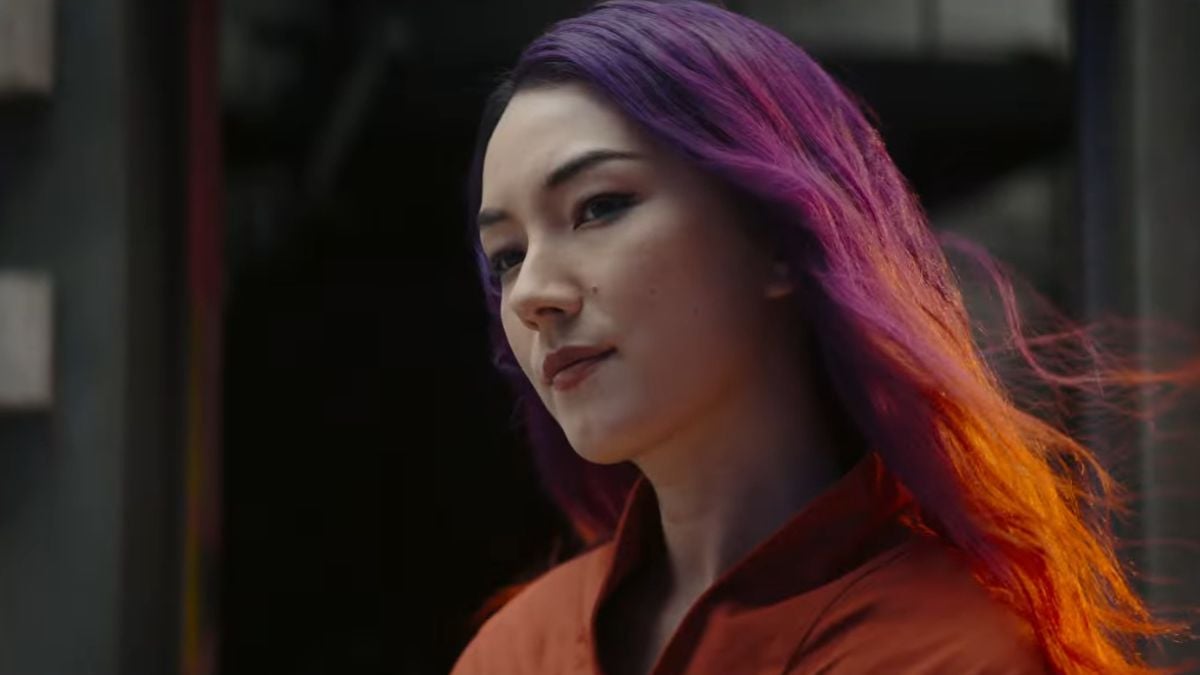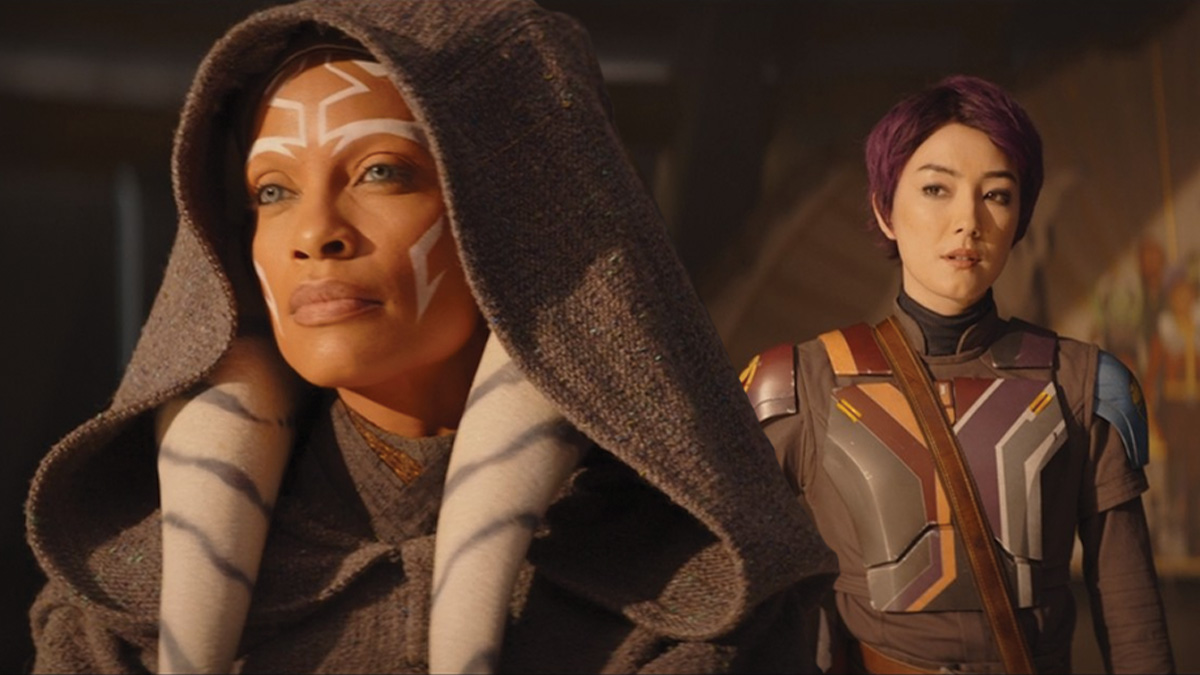Warning: The following article contains spoilers for Ahsoka episode 3.
Ever since Ahsoka debuted last week, a question striking at the very heart of Star Wars mythology has plagued fans everywhere: Is Natasha Liu Bordizo’s Sabine Wren Force sensitive? However, even as episode 3 has inched us closer to a definitive answer to that question, it may have rewritten the rules of the galaxy far, far away in the process.
You see, in the episode, Sabine tells Rosario Dawson’s Ahsoka following a blind sparring match that she failed: “I can’t use the Force,” a sentiment that seems to be consistent with how the character had previously been set up in Rebels. However, Ahsoka’s response is something we predict will cause a minor controversy within Star Wars fandom.
Ahsoka explains that “The Force resides in all living things. Even you” and that “Talent is a factor” as the explanation as to why not everyone uses it. This seems to imply that any old Joe off the street could hone in on using Force powers if they just dedicated themselves enough to learning how. And while that seems to fly in the face of a previously established concept of some people being Force-sensitive and others not being gifted with that ability, Ahsoka’s follow-up remark all but confirms that is basically not the case at all.
“Training and focus are what truly defines someone’s success…not everyone can handle the kind of discipline it takes to master the ways of the Force,” Ahsoka tells Sabine.

On the one hand, what Ahsoka says is somewhat reminiscent of the concept of universality that the Force seemed to embody with the original description provided by Alec Guiness’ Obi-Wan Kenobi in the original Star Wars. As he tells Luke:
“The Force is what gives a Jedi his power. It’s an energy field created by all living things. It surrounds us and penetrates us. It binds the galaxy together.”
However, on the other hand, it seemed in the course of the movie that only Jedi were relegated to using the Force and us normies would have to contend with having no superpowers at all, like Han Solo, for instance. What’s more confusing is, it isn’t entirely clear if Sabine is actually being trained to be a Jedi since Ahsoka tells David Tennant’s Huyang “I don’t need Sabine to be a Jedi, I need her to be herself.”
Despite Ahsoka telling Sabine to “start small,” we don’t see the young apprentice successfully move a cup using the Force, no matter how hard she tries, throughout the remainder of the episode. For that reason, and the ambiguity of whether Sabine’s Jedi training is “official” or not, it remains to be seen whether the character truly will be able to move lightsabers with her mind by the time the series concludes. After all, this could all be a bait-and-switch with a “you never needed Force powers to succeed” lesson at the end.
Let’s face it, the Star Wars franchise has never been completely consistent in its explanation of how the Force works. After all, the idea of midi-chlorians was the explanation behind the Force introduced in The Phantom Menace, but that bit of lore has rarely been referenced outside the prequel trilogy. If those rules were still in place, Sabine’s ability to use the Force would depend on the number of midi-chlorians in her body, and no amount of training would likely ignite it if there were too few.
We’ll likely find out more about what Ahsoka is and is not rewriting regarding the broader Star Wars mythology when new episodes drop each week on Tuesdays on Disney Plus.

